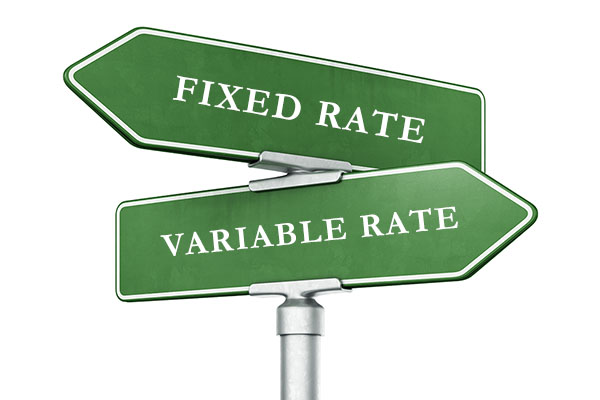A mortgage is a financial product that serves as a loan with specific terms and conditions. When clients take on a mortgage, they will be allowed to purchase a commercial or residential property.
Failure to make the necessary monthly payments, which includes interest payments, will lead to the bank or financial institution that issued the loan seizing the property from the client. There are also two main mortgage types: fixed and variable-rate mortgages.
Your monthly mortgage payment and interest rate will remain constant throughout your loan, with a fixed-rate mortgage throughout your loan. Conversely, the interest rate will fluctuate according to the lender’s prime rate when taking on a variable-rate mortgage.
Here, we will discuss some of the key differences between fixed and variable interest rates to choose the best option for your unique needs.
What is a Fixed Mortgage?
A fixed mortgage is a type of loan where your interest rate and monthly payments remain constant for the duration of the loan.
Provided you have a good credit score, stable income, an adequate down payment and meet all of your lender’s criteria, you should be able to qualify for a fixed mortgage.
This option will allow you to budget easier and provide you with peace of mind, which is why it is the most commonly used mortgage rate. The benefits of a fixed mortgage rate from a professional lender are certainly something to consider when applying for a loan.
What is a Variable Mortgage?
A variable-rate mortgage is a mortgage with an interest rate that will change according to your lender’s prime rate. While your regular monthly payments will not change, the interest you pay will be determined by the current market conditions. You should expect it to fluctuate over your loan term.
Your monthly payments will stay the same, but the portion of those payments that go to your interest charges versus principal payments will differ each month. For example, when interest rates decrease, a larger portion of your payment will go towards the principal, helping you build equity faster.
Conversely, when the interest rates go up, more money will go towards your interest payments and less to your principal.
It should also be noted that the qualification criteria for a variable-rate mortgage tend to be similar to the requirements for a fixed-rate mortgage. However, variable-rate mortgages tend to be more flexible.
For instance, some lenders may allow you to switch to a three-year or longer fixed-rate closed mortgage if your financial needs change. You may not even have to pay a prepayment charge to do so either.
In addition, the monthly payment and interest rate tend to be lower than what you would have to pay with a fixed-rate mortgage, at least initially. However, there is a risk that the prime rate may go up in the future, causing your payments to go up, potentially exponentially.
There is a degree of risk and uncertainty with a variable-rate mortgage, but it can lead to big savings during periods of low-interest rates.
How to Choose Between a Fixed or Variable Mortgage?
You first need to have a clear idea about your savings, current needs, future financial goals and current market conditions. If interest rates appear to be increasing, a fixed rate may be best. However, if they are declining, a variable interest rate can help you take full advantage of this trend.
You also need to compare and contrast various financial products and offers to choose the best interest rate available to you, irrespective of which of the two mortgage types you choose. Moreover, you need to calculate the prepayment amount as well and ensure you can afford it along with other living expenses like taxes, insurance, and existing debts.
Flexibility is also something to consider. For example, you cannot switch from a fixed-rate mortgage into a variable-rate mortgage without breaking your mortgage contract (and likely paying a penalty), but the opposite is possible.
Historically speaking, variable-rate mortgages tend to cost the buyer slightly less over the duration of their term. However, the ongoing Covid-19 pandemic and global strife may affect historical trends.
Speaking to a financial advisor or financial broker during these difficult and tumultuous times may help you make a sound financial decision that will place your family’s best interests at the forefront.
Making the Right Choice For You
Fixed mortgages are the safer option, as the monthly payments and interest rate will remain stable throughout your mortgage. However, they are also less flexible, as you cannot switch from a fixed-rate term to a variable-term mortgage without breaking your current mortgage. Fixed-rate mortgages have historically been shown to cost the buyer more money over their term.
If peace of mind is a top priority for you, and you have a stable job and prefer to set aside a monthly budget, then a fixed-rate mortgage may be safer.

“Proud thinker. Tv fanatic. Communicator. Evil student. Food junkie. Passionate coffee geek. Award-winning alcohol advocate.”

